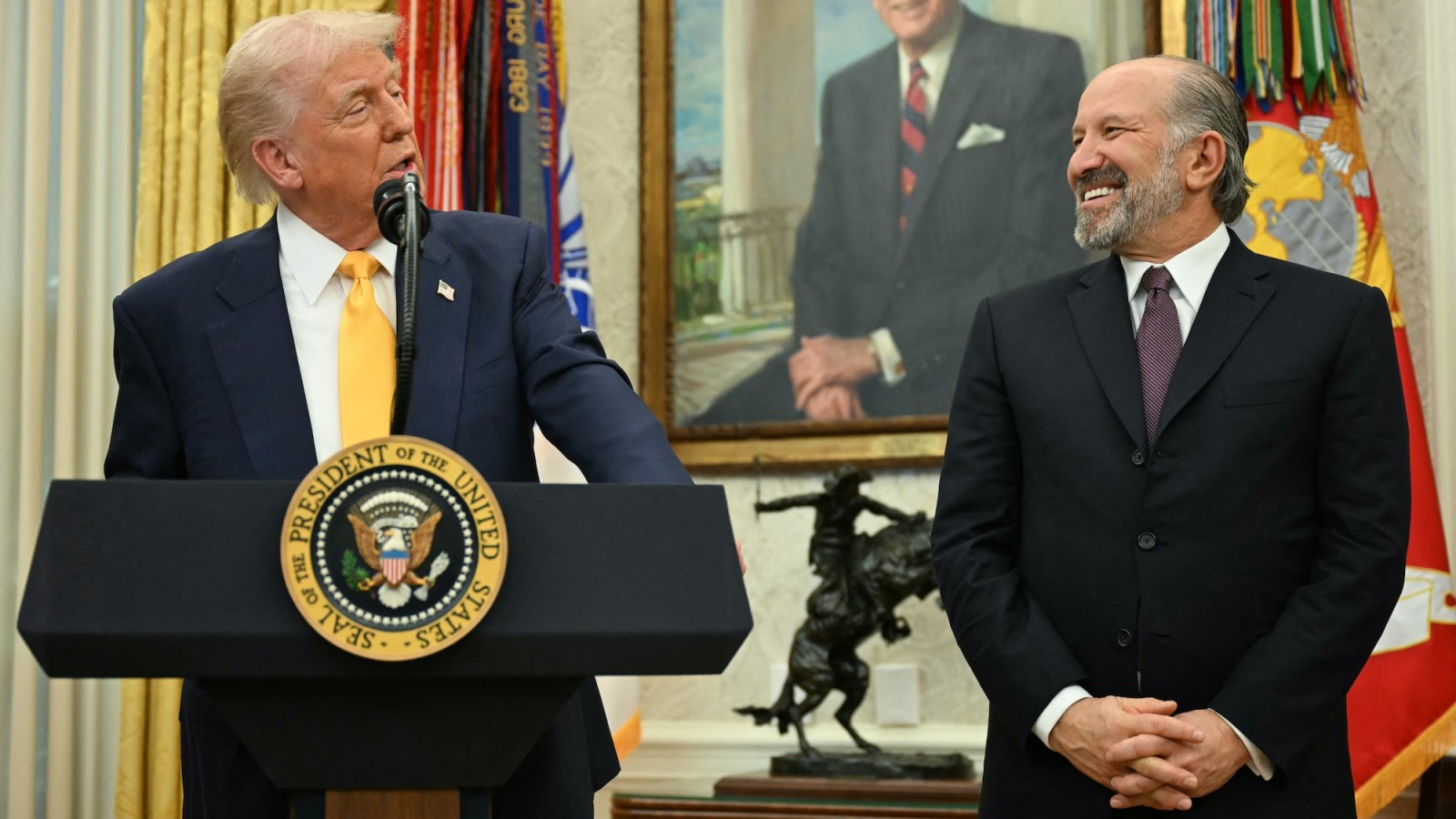
Dock workers and truckers who are out of work or worried about their jobs because China‘s trade with the U.S. is coming to a grinding halt “should be very optimistic and positive, because the president truthed it out,” Commerce Secretary Howard Lutnick said Sunday.
Since the punishing 145 percent tariffs on China’s imports to the U.S. went into effect, ports on the West Coast have seen plummeting cargo volume. Trump has said that is “a good thing.”
“That’s good… That means we lose less money,” the president said last week in the Oval Office when a reporter asked about workers concerned that trade has sharply decreased. “When you say it slowed down, that’s a good thing, not a bad thing,” Trump added.
Fewer shipments means less work for those who transport imported goods — like dockworkers and truck drivers. And they’re already feeling the pinch.
“Just today, we had some what north of 235 members who sought work but were not able to get it,” Sal DiContanza, port liaison for the International Longshore and Warehouse Union, told NBC Los Angeles on Friday. “It’s beginning to manifest itself as a real loss of jobs and income from our members.”
While Lutnick said these American workers should stay “optimistic,” he also said that they can expect the tariffs to stay into the “foreseeable future.”
“We do expect a 10% baseline tariff to be in place for the foreseeable future — but don’t buy the silly arguments that the U.S. consumer pays,” Lutnick said on CNN’s State of the Union on Sunday.
When host Dana Bash told Lutnick “the cost of tariffs are paid by American consumers,” the secretary responded, “Well, I disagree with that, you know.”
“Most economists, I would say, disagree with you on that,” Bash said. “And we have seen it being passed off time and time again to the American consumer.”
Bash is right. Economists largely agree that tariffs are paid by American companies importing the goods to the U.S., and those companies typically pass on the added expense to consumers by raising prices.
One study on the tariffs that Trump imposed during his first term found that U.S. consumers paid the cost of tariffs in the form of higher prices on washing machines, solar panels, aluminum, steel, and goods coming from China and the European Union. That caused a net loss of $114 billion for companies and consumers as well as a $16 billion loss to the U.S. economy. Another study by economists on Trump’s first term tariffs concluded that “U.S. tariffs continue to be almost entirely borne by U.S. firms and consumers.”
Already, consumers are seeing higher price tags on imported goods due to Trump’s tariffs. But Trump administration officials have tried to paint a rosier picture like Lutnick or dodged questions about rising prices altogether.
Testifying to Congress last week, Rep. Mark Pocan asked Treasury Secretary Scott Bessent who pays for tariffs. Bessent hemmed and hawed before saying the answer was “very complicated.”
The U.S. and China are currently engaged in trade talks in Switzerland. Bessent said on Saturday night that there has been “substantial progress” in the talks, while Trump said that the two parties achieved a “total reset … in a friendly, but constructive, manner.”
As Rolling Stone reported, despite the administration’s outward optimism, in private, Trump officials and others working in Republican politics have been stockpiling goods in anticipation of shortages.
Economists have cautioned that an ongoing global trade war will slow global economic growth and could put the U.S. into a recession. Federal Reserve Chairman Jerome Powell has warned that Trump’s tariffs could cause increased inflation and rising unemployment.
“The effects on inflation could be short-lived, reflecting a one-time shift in the price level. It is also possible that the inflationary effects could instead be more persistent,” he said.